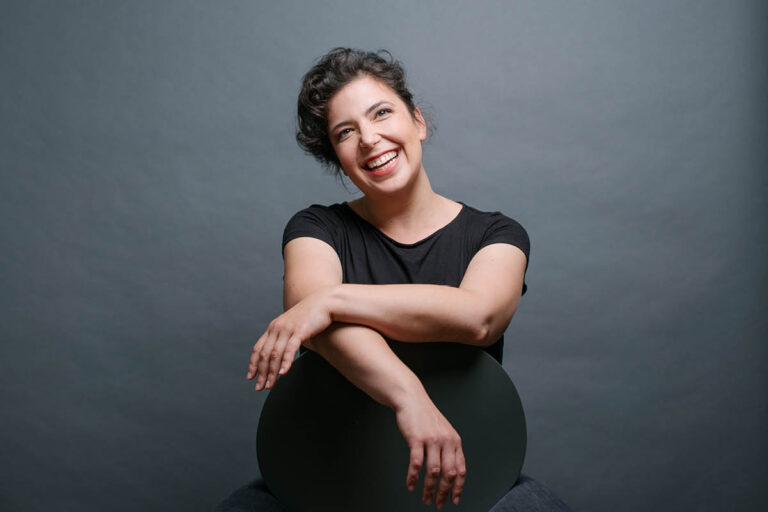He’s not the Messiah, but the Biblical figure of Samson was nonetheless, a self-sacrificing saviour. While the similarities between Handel’s two monumental oratorios, composed in quick succession, may end there, the contrasts continue.
Where Messiah glorifies, Samson is dark and gripped by betrayal; Messiah is redemptive, Samson is introspective; Messiah has no defined characters, but Samson casts players and contrasting choruses, the Philistines and the Israelites. Samson is a sorry figure, made captive through his indiscretion, but the death he longs for, ultimately brings him honour.

Pacific Opera Studio: Samson. Photo © Rosa Doric
Samson’s libretto is based on Milton’s Samson Agonistes, drawn from the Book of Judges. At the time, Milton and Handel were at peak popularity. They made a dream team. Milton’s evocative words and Handel’s setting of these complex and powerful emotions to music enjoyed immediate success by “all the people of quality in town.” Its premiere sold out six performances at the Covent Garden Theatre in 1743 and was more popular in London than Messiah.
That Pacific Opera Studio, an enduring and respected training ground for emerging opera singers should champion an oratorio may seem incongruous. Delve a little...
Continue reading
Get unlimited digital access from $4 per month
Already a subscriber?
Log in










Comments
Log in to start the conversation.